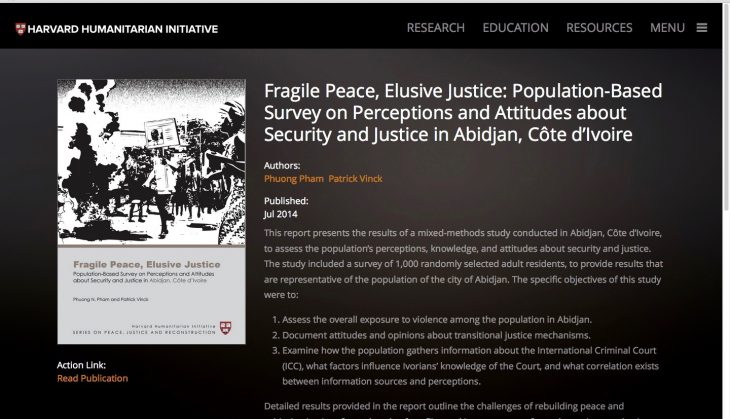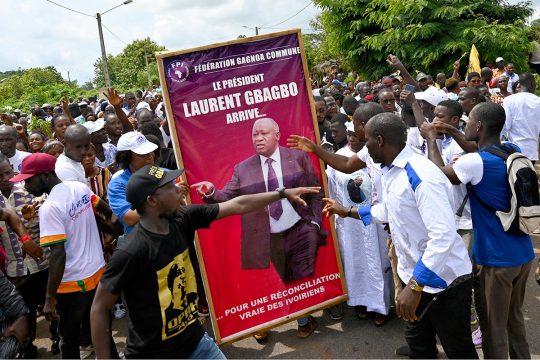This January 28th, Ivorian ex-President Laurent Gbagbo and former youth minister and militia leader Charles Blé Goudé faced judges at the International Criminal Court in The Hague, Netherlands, on the first day of their trial. Both men are on trial for crimes allegedly committed in an effort to keep Gbagbo in power after the 2010 presidential elections. Both men claim to be innocent.
But in the Ivorian capital city of Abidjan, some 5,000 km away from The Hague, the population wants to see justice beyond a guilty or innocent verdict for the two men. Abidjan was the theater of some of the most violent episodes of the 2010 post-electoral crisis. Some 66% of the inhabitants identified themselves as victims of the violence, according to a survey conducted by Harvard Humanitarian Initiative (HHI) in 2013.
For many, there is no doubt that Gbagbo bears some responsibility for the 2010 post-electoral violence. Most (70%) lay the blame for the violence squarely in the hands of politicians and their fight over power. But the post-electoral violence may have been just a symptom of a deeper divide between the government and its population. In Abidjan, just one in ten adults believed elected officials represent the interests of the population well; and in the years since the 2010 crisis, there is little evidence suggesting that confidence in the government has improved. Alassane Ouattara – Gbagbo’s opponent in 2010 – was re-elected President in 2015, but the country has not made much progress towards political dialogue.
Perhaps more importantly, the country must still confront its past. In the 2013 survey, respondents emphasized the need to understand what happened and why, seeing truth as an essential component of justice. A ‘Dialogue, Truth and Reconciliation Commission’ was established for this purpose, but it produced little or no results. The trial of Gbagbo and Blé Goudé is unlikely to contribute much more to establishing a balanced narrative of the conflict and the violence.
The trial of Gbagbo is also unlikely to change the mistrust and divisions that exist in the population. In Abidjan, ethnic divide was the second most frequently identified cause of the 2010 violence. About two-thirds of the respondents felt little or no trust towards neighbors (69%), members of their own ethnic group (62%), or members of another ethnic group (69%). This had far-reaching consequences on the sense of insecurity that prevailed, and the lack of solidarity and social support networks.
In 2013, survey respondents said that true justice and reconciliation require political and community dialogue, institutional reforms, truth, jobs and poverty reduction. This is much more than what a criminal trial – even the trial of an ex-president – can offer.






